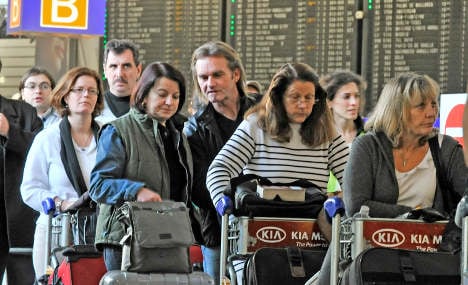According to an unnamed Finance Ministry source, revenue from the tax from the beginning of January to the end of February garnered some €59.1 million, business daily Handelsblatt reported.
But Finance Minister Wolfgang Schäuble had previously said he expected the tax, part of an austerity plan passed last autumn, to add €1 billion per year to government coffers – or some €83.3 million each month, well below current levels.
Airlines told Handelsblatt they doubted the tax would be successful, because many passengers seem to be turning to airports just across German borders.
Since January 1, airline tickets have been more expensive in Germany thanks to the tax, which adds some €8 to short-haul flights, €25 for mid-length trips and €45 on long-haul routes.
The Finance Ministry said in a report released Monday that the flagging flight tax situation could improve once the summer travel season begins. An official assessment of the tax is scheduled for June 30.
Meanwhile revenues in other areas have shown a significant improvement, with an increase of some 9.7 percent in February compared to last year, the ministry reported.
Last December low-cost Irish airline Ryanair said it would make further cuts to its services in Germany due to the new levy. Their plans included reducing capacity in the German capital by 56 percent, scrapping flights to four cities from the Berlin-Schönefeld airport from mid-2011.
Overall capacity in Germany is expected to fall by three million passengers per year and could lead to the elimination of 3,000 jobs, the carrier said.
The Local/DPA/ka



 Please whitelist us to continue reading.
Please whitelist us to continue reading.
Member comments